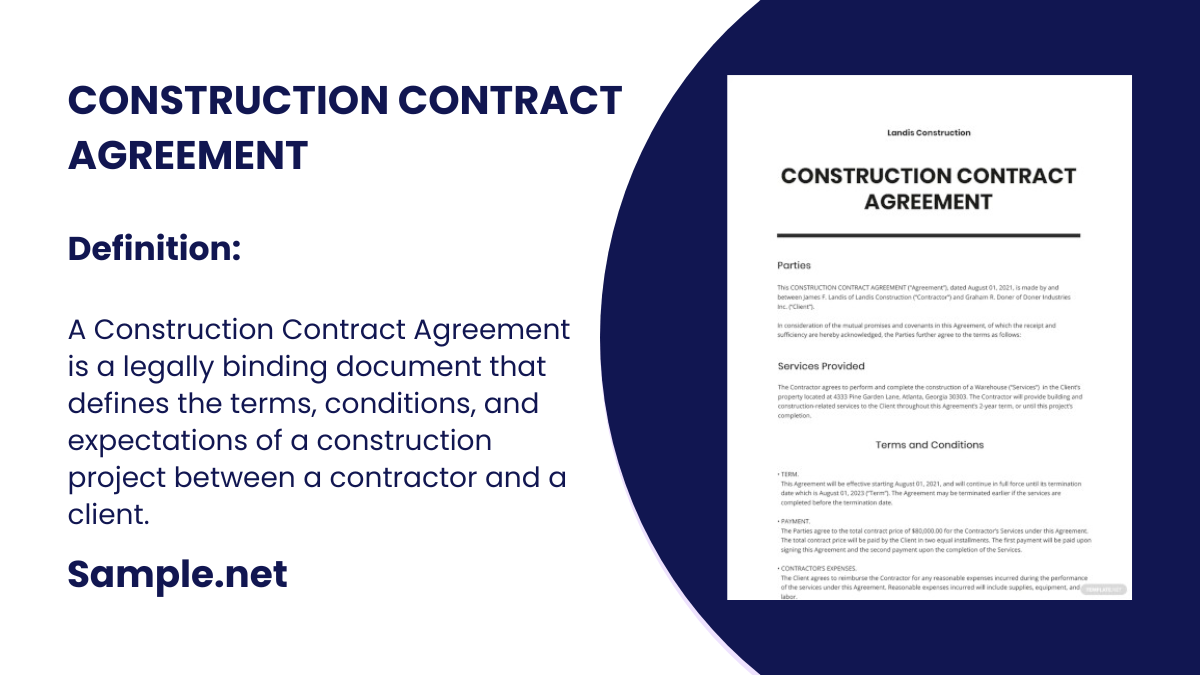A Construction Contract Agreement is a legally binding document that defines the terms, conditions, and expectations of a construction project between a contractor and a client. It ensures clarity,…
continue readingA construction contract is an agreement between a client and a contractor that specifies the details of a construction project. The details in a construction contract should include all aspects of the project, including payment, the type of work being done, legal rights of the contractor, and more. The conditions of a building project are spelled out in a construction contract agreement. It is a legal document that describes the job to be done and must be agreed upon by all parties concerned. For some types of construction projects, you may need government permits in addition to the construction contract before contractors can begin working. Do you need a blank, printable, easy to edit template? You came to the right place, download our construction agreements for free!
48+ Sample Construction Agreements
-
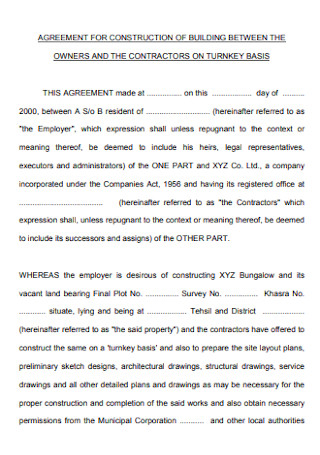
Building Construction Agreement
download now -
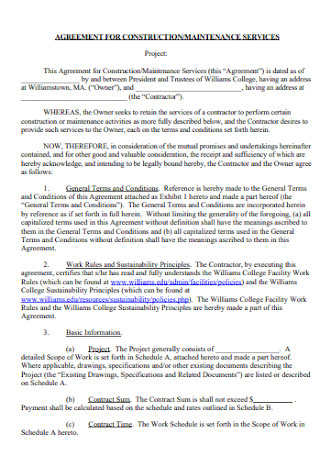
Construction Maintenance Agreement
download now -
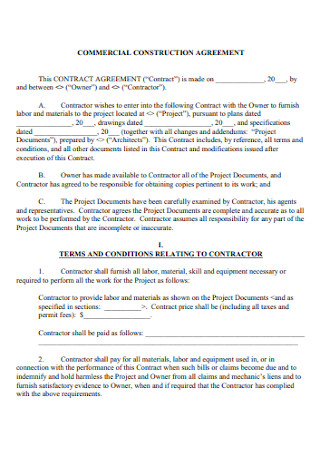
Commercial Construction Agreement
download now -
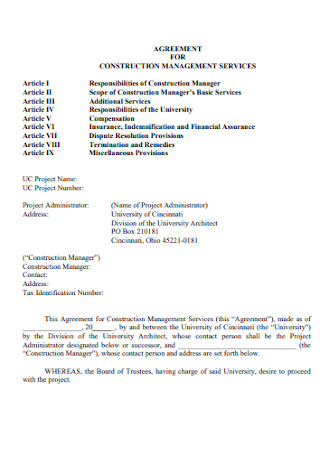
Agreement for Construction Management
download now -
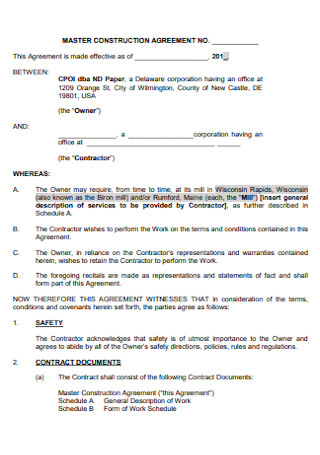
Master Construction Agreement
download now -
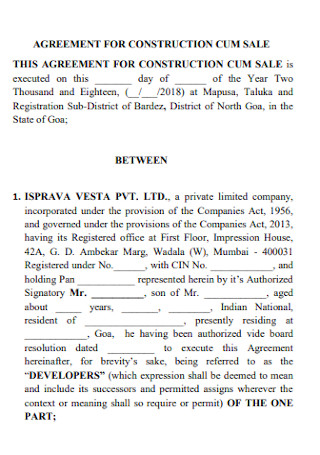
Agreement for Construction Cum Sale
download now -
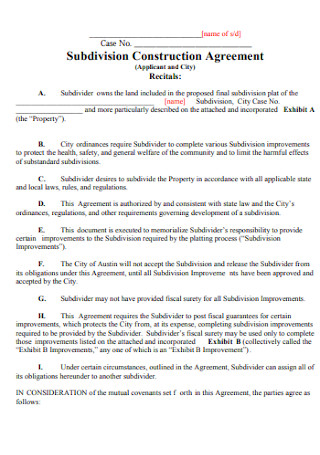
Subdivision Construction Agreement
download now -
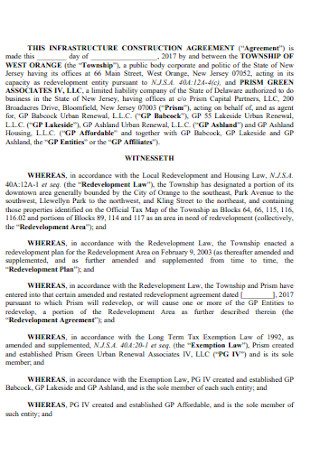
Infrastructure Construction Agreement
download now -
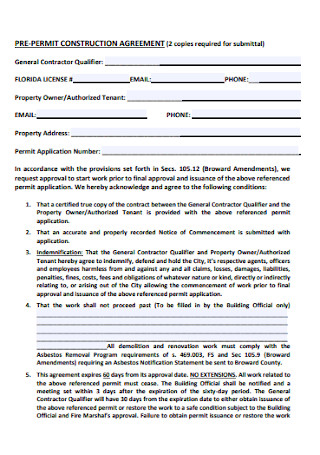
Pre Permit Construction Agreement
download now -
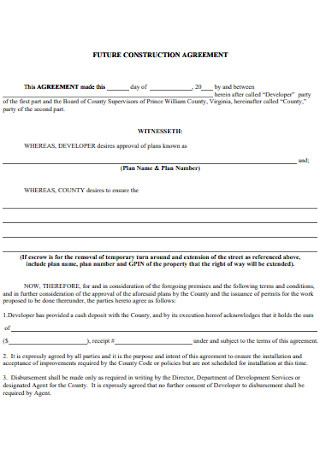
Future Construction Agreement
download now -
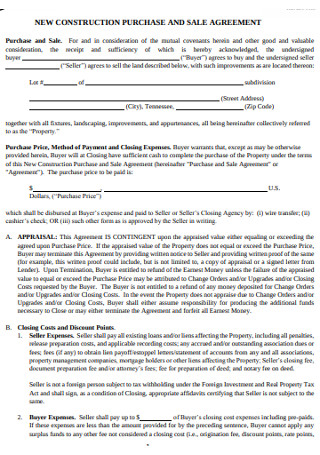
New Construction Sale Agreement
download now -
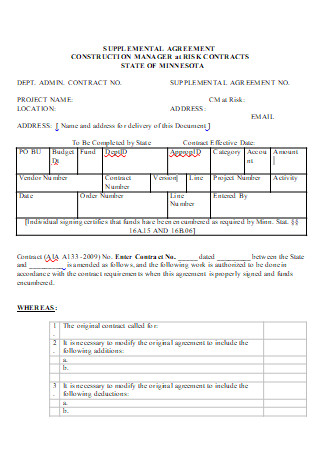
Construction Manager Agreement
download now -
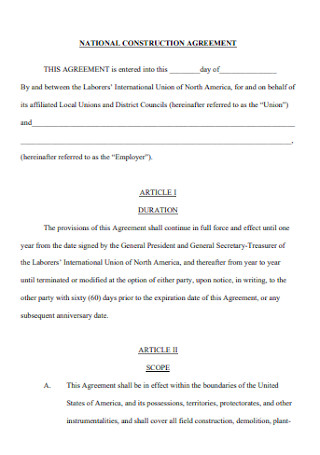
National Construction Agreement
download now -
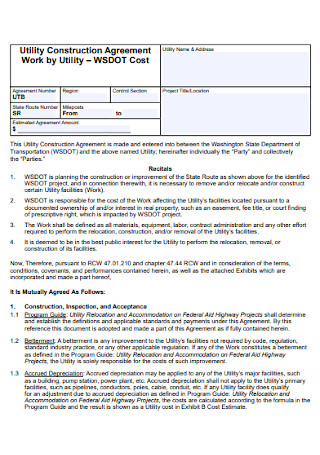
Utility Construction Agreement
download now -
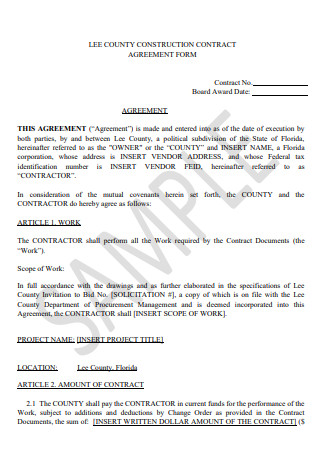
Construction Contract Agreement Form
download now -

Sample Pre?Permit Construction Agreement
download now -
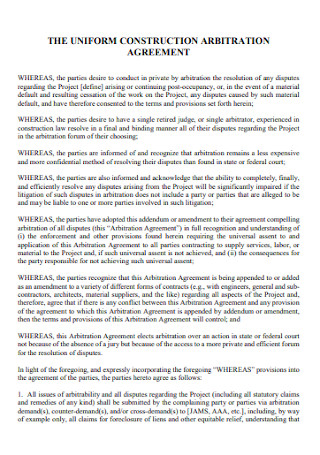
Uniform Construction Arbitration Agreement
download now -
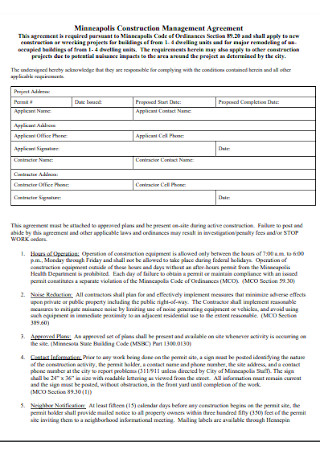
Construction Management Agreement
download now -
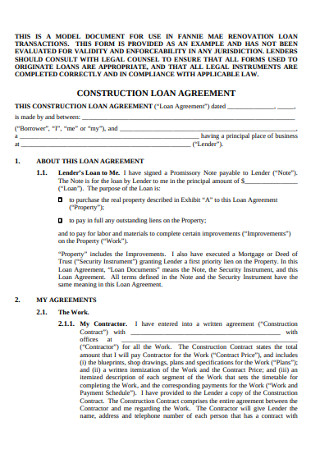
Construction Loan Agreement
download now -
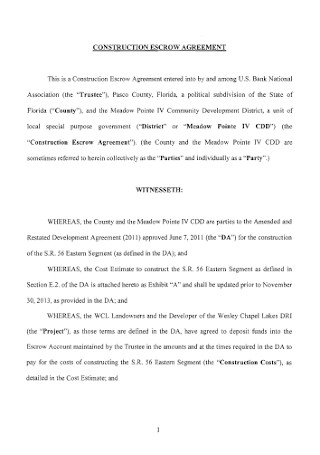
Construction Escrow Agreement
download now -
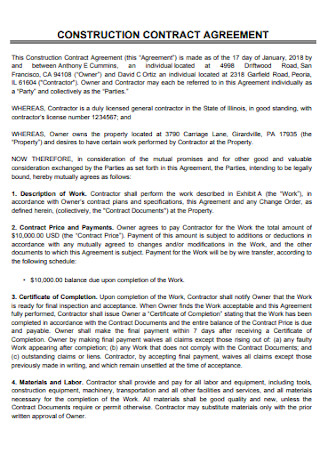
Construction Contract Agreement
download now -
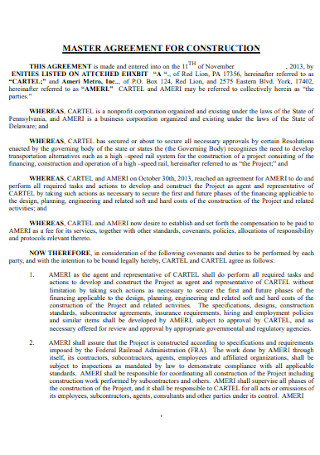
Master Agreement for Construction
download now -
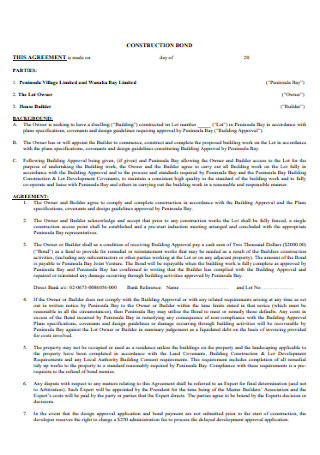
Construction Bond Agreement
download now -
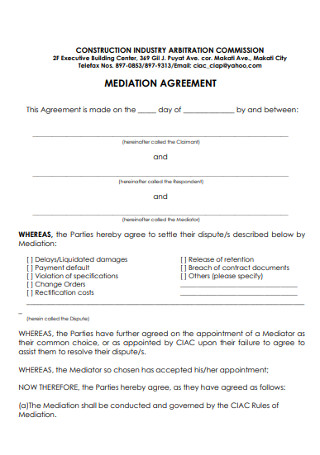
Construction Medication Agreement
download now -
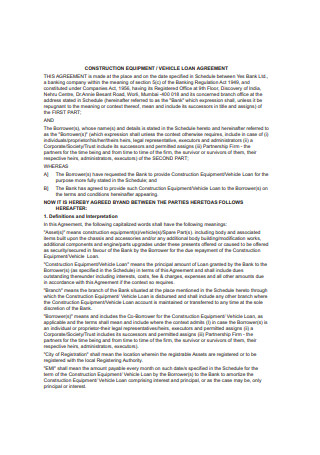
Construction Equipment Agreement
download now -
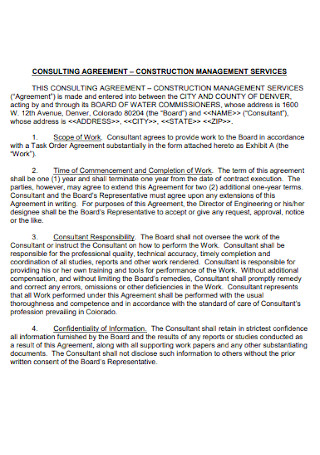
Construction Consulting Agreement
download now -
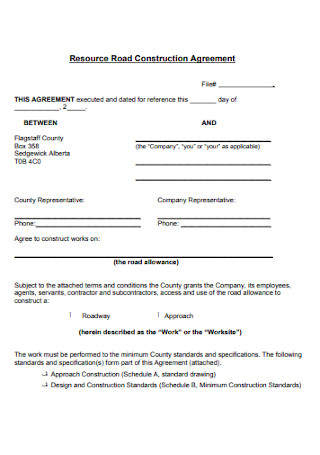
Resource Road Construction Agreement
download now -
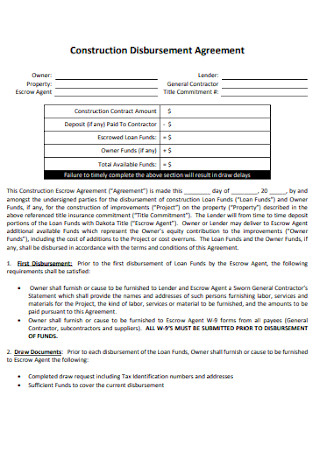
Construction Disbursement Agreement
download now -
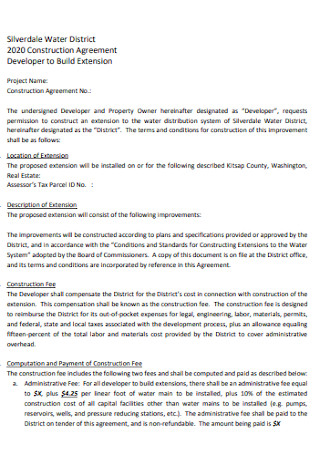
Build Developer Construction Agreement
download now -
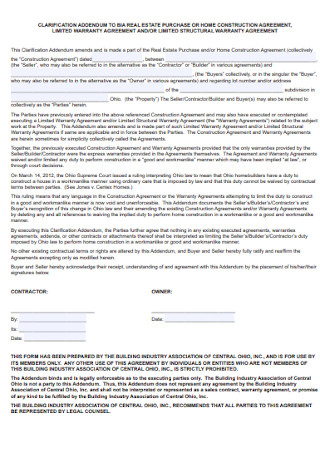
Home Construction Agreement
download now -
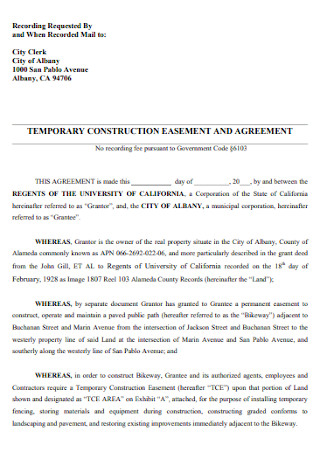
Temporary Construction Agreement
download now -
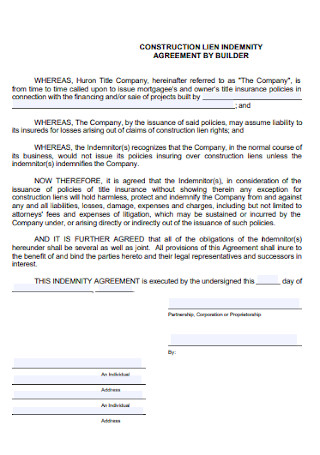
Construction Indemnity Agreement
download now -
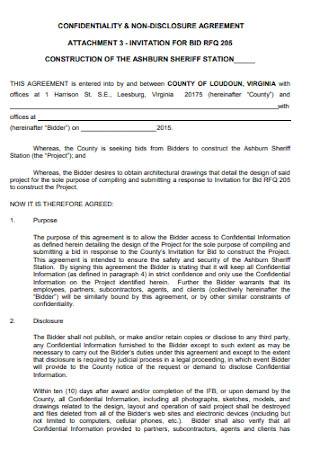
Construction Non Disclosure Agreement
download now -
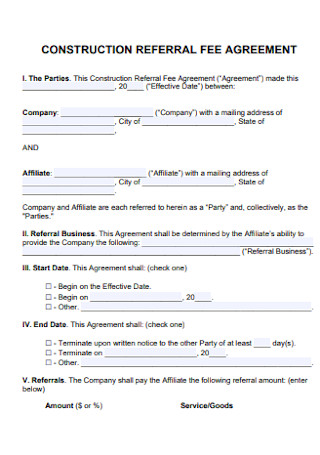
Construction Referral Fee Agreement
download now -
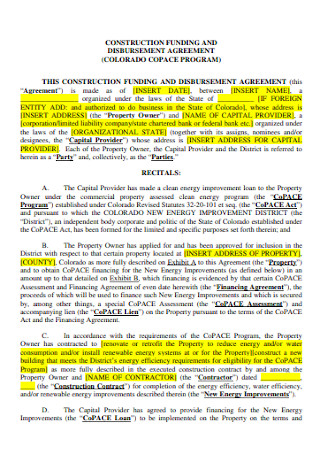
Construction Funding and Disbursement Agreement
download now -
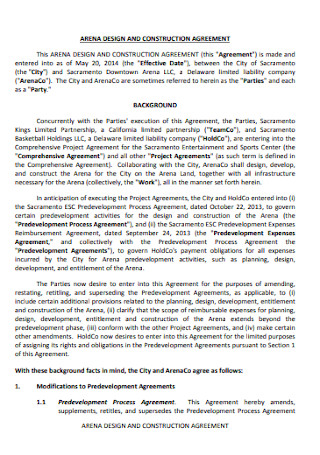
Design and Construction Agreement
download now -
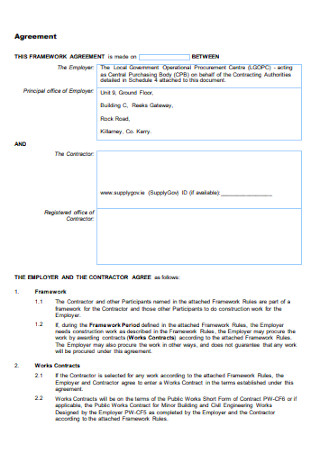
Construction Work Agreement
download now -
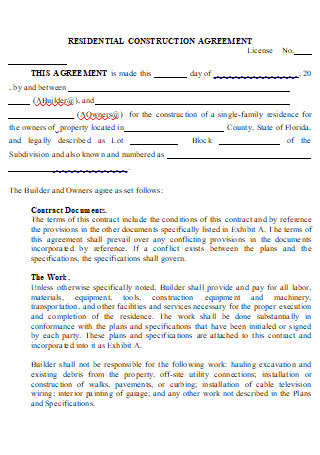
Residential Construction Agreement
download now -
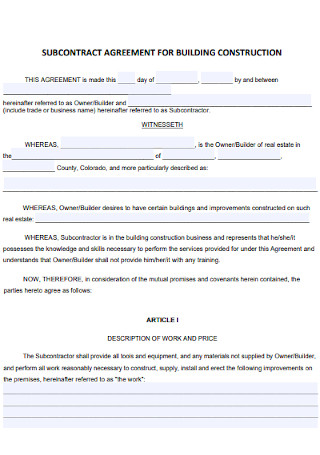
Subcontractor Agreement for Building Construction
download now -
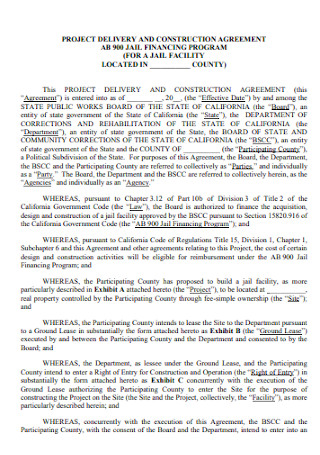
Project Delivery and Construction Agreement
download now -
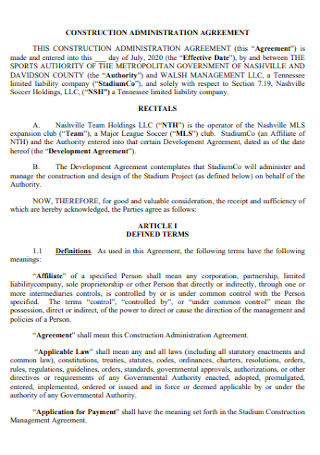
Construction Administration Agreement
download now -
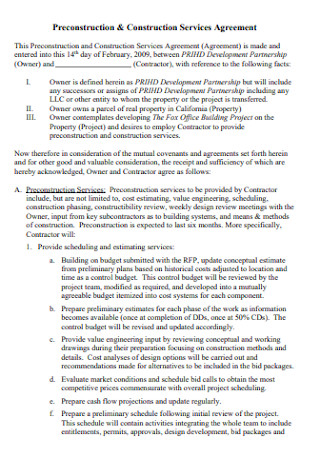
on and Construction Services Agreement
download now -
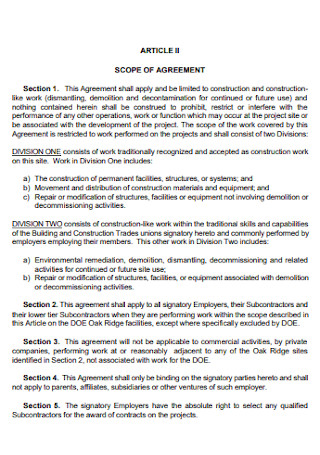
Construction Labor Agreement
download now -
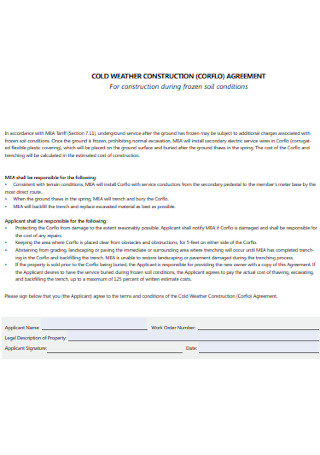
Cold Weather Construction Agreement
download now -
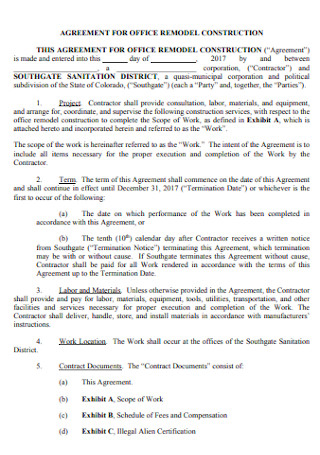
Agreement for Office Remodel Construction
download now -
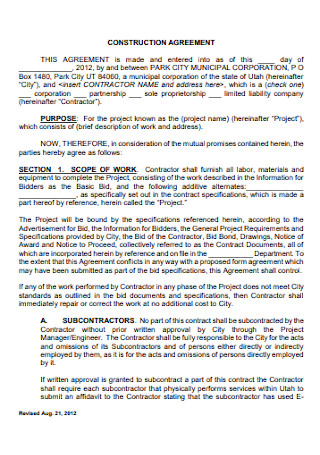
Standard Construction Agreement
download now -
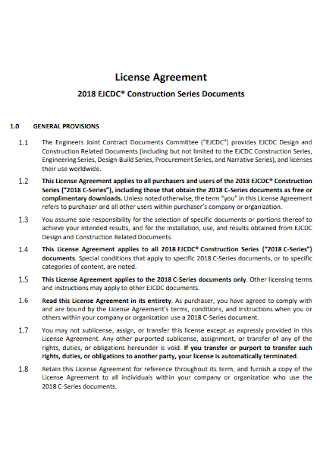
Construction Series License Agreement
download now -
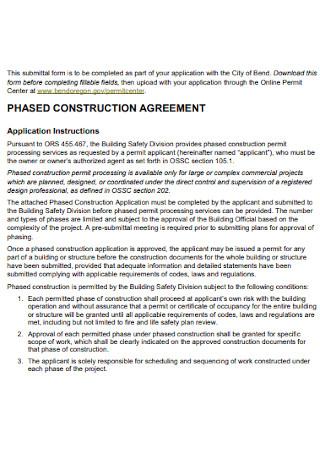
Sample Phased Construction Agreement
download now -
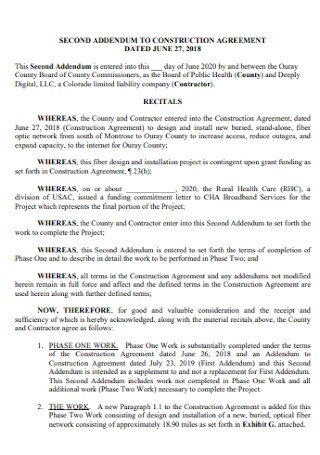
Second Amendment to Construction Agreement
download now
What Is a Construction Agreement?
A Construction Contract Agreement is a formal agreement between a property owner and a general contractor that details the construction, renovations, alterations, or other work that will be performed on the property owner’s home or land. This agreement describes which parties will be involved, the money to be paid, each party’s rights, and the start and end dates for construction. A construction contract agreement is a document that specifies the scope and terms of a project’s work. It’s a contract between the construction company and the individual or company who hired them to complete the job. You can also indicate how the jobsite should be managed, including worker supervision, material storage, and where garbage can be disposed of. Sometimes a construction agreement may also be called construction contract, construction management agreement, service agreement for construction, construction services contract, contract for construction and construction contractor agreement.
Basic Elements That a Construction Agreement Should Have:
There are different types of terms and elements that a simple construction agreement should have, these are important if you are going to encounter an agreement or create one so that you would be able to know what those terms mean or why they are needed in the first place. Listed down below are the basic elements that you have to understand and have in a construction agreement:
How To Create a Construction Agreement?
Whether you’re a contractor or the owner of a home or business, you’ll need a construction contract to spell out each party’s responsibilities and rights. A construction contract should include provisions such as ensuring that the contractor has the necessary licenses and insurance, as well as informing the owner that failure to pay could result in a mechanic’s lien being placed on their property. Learn more about creating your own construction agreement below:
1. Identify the type of construction agreement you are writing for
There are no one-size-fits-all building contracts. They are available in four distinct formats, based on your preferences and the nature of the job. These are a few examples:
- Fixed-price, or lump-sum, contracts – These contracts may include stipulations for liquidated damages or penalties if the contractor completes the project after the projected completion date, as well as a fixed price for the completed task.
- Cost-plus contracts – For projects with some uncertainty, such as the homeowner omitting details that emerge once work is underway, a cost-plus contract can help protect the contractor by representing a fixed fee or percentage and including a guaranteed maximum price so that the project fee has a cap. For projects with some uncertainty, such as the homeowner omitting details that emerge once work is underway, a cost-plus contract can help protect the contractor by representing a fixed fee or percentage and including a guaranteed maximum price so that the project fee has.
- Time and material contracts – This sort of contract, like the cost-plus contract, is useful for projects with a high degree of uncertainty. The owner, on the other hand, normally pays hourly or daily, without the “plus” fixed charge or percentage, and the contractor may also include a guaranteed maximum price to provide the homeowner peace of mind about the ultimate cost of the job.
- Unit-pricing contracts – Unit pricing allows the owner to know that the contractor is charging a standard amount without a markup for individual units necessary for the project, which is commonly used by contractors when bidding on government projects.
2. Identify the necessary details that are needed
Writing or signing for a construction agreement is like any other agreements, you should indicate and include the name of the contractor and contact information, name of the homeowner and their contact information, description of the property in legal terms, all necessary attachments to the contract should be included such as the blueprints or any other specifications that are needed for the project, cost, remedies for breach of contract and requirements for licenses, permits and insurance.
3. Include financial information
The amount of money the owner or client has agreed to pay you for executing the service should be stated. Include the contract amount, non-refundable deposit, progress payment schedule, final payment, and interest in your calculations. List the total cost of the project and select whether the homeowner will pay in numerous installments rather than a single lump sum. If the owner is paying in installments, make a record of the due dates and amounts. If the craftsmanship is poor or if specific conditions exist, the homeowner has the right to refuse to pay an installment.
4. Describe how you’ll manage any changes to the work order.
Include terms and clauses that protect you from unanticipated work and costs. Explain how you feel about change orders and claims. If either party intends to break the contract, make it clear that it is only possible if both parties sign a written document that is approved by both parties and signed with the same formalities as the original agreement.
5. Signature and date by both parties
Notarization is only required if the state in which the job is performed stipulates it. A signature line should be included in the agreement, with a space for each participant to sign below the signature with his or her typed or printed name, address, and phone number.
FAQs:
When do I need a construction agreement?
If you are involved in the construction, renovation, or alteration of a building or structure, you should employ a Construction Contract Agreement. Perhaps you’ve finally made the decision to construct your ideal home and begin living happily ever after. Because of unjustified contractor delays or unexpectedly large prices, happily ever after may have to wait. Perhaps you’re a small-town contractor trying to expand your firm and take on bigger projects. In either case, make sure you have a written agreement that will serve as the blueprint until the construction is finished and all the creases are ironed out. This agreement allows the parties to spell out the exact nature and details of the work to be done, as well as each party’s duties during the construction process. It also contains information about the project’s payment terms.
What are the consequences of not using a construction agreement?
Let’s say your contractor and his crew went on strike and are now seeking exorbitant payment for items and labor that were not initially agreed upon. Alternatively, your client, the owner, refuses to pay you once the assignment is completed. In either case, you’ll want to be sure you have a written agreement to safeguard your rights. You risk wasting time and money if you don’t have an agreement, not to mention the quality of the construction. Construction success is contingent on clearly stated goals and timelines. Owners and contractors are both affected by mistakes or delays, with owners incurring higher expenditures because they are unable to use the property for the intended purpose at the planned time, and contractors incurring additional labor and equipment costs. Owners might employ a liquidated damages clause in their contract to protect themselves from construction delays. For each day that construction is delayed, the contractor will pay the owner a specified amount in liquidated damages. Rather than fighting over damages in court, the owner and contractor might agree on a liquidated damages figure ahead of time.
Construction Agreement shouldn’t be that such a hard thing to make, download our templates that you can use for your next construction project.
